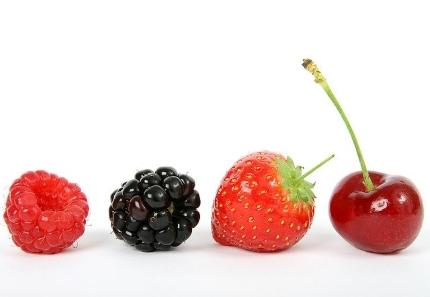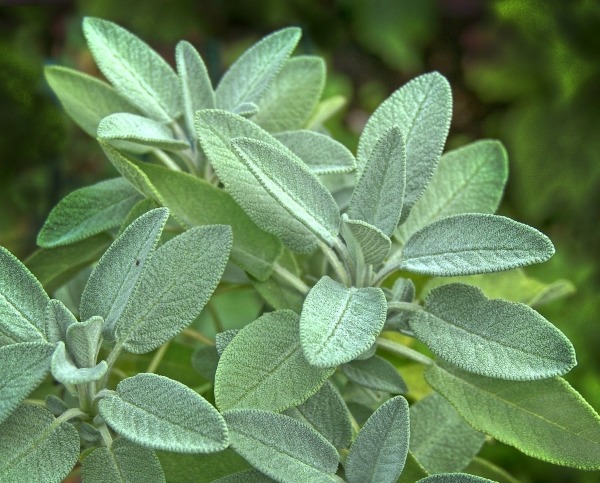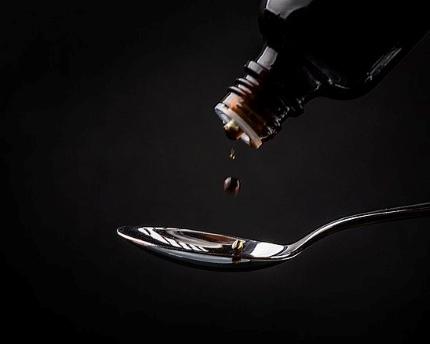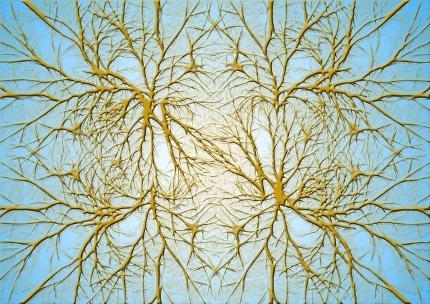Is sage a nootropic? This article explores how sage could potentially improve your brain function.
You probably never thought a herb as common as sage could be both a spice and a medicine at the same time.
The truth is, sage has been working double duty like this for many moons.
Just for starters, sage is known to help increase circulation, reduce body pains, improve digestion, and treat respiratory illnesses.
However, recent research has also revealed that the active ingredients in sage can prevent mild cognitive impairments like Alzheimer’s.
We’ve also seen indications that sage can provide greater resistance to stress, fight off depression, reduce anxiety, and improve mental clarity.
Sounds like sage packs a pretty big punch! But how potent is it really? Can it pass the test as a true nootropic? Or is it just an old folk remedy for the sniffles?
Furthermore, what are the inner workings?
Let’s find out!
What is Sage? – Where is it found?
Sage is a distant cousin of flowering mint, and is included in the Lamiaceae family, along with 7,000 other plant species.
Inside the Lamiaceae class is the genus Salvia(Sage), with just over 900 varieties.
Salvia literally means ‘to Heal’ in Greek, and while it’s native to the Mediterranean region of Europe, it’s found all over the World.
The 2 most common species used for medicinal purposes are common sage (Salvia Officinalis), and Spanish sage (Salvia lavandulaefolia).
Most of the research on sage to date has been done using these 2 varieties, so we’re going to refer to both of them during the course of this article.
Generally speaking, despite small differences, all species of sage are known to help with:
- Bad Circulation
- Inflammation
- Body Pains
- Bad Digestion
- Bronchitis
- Asthma
- Coughs
Basically, the essential oils in sage are very rich in Terpenoids, Alpha-Thujone, Beta-Thujone, and Camphor. What does that mean? Don’t worry, we’ll get to that!
Sage is also packed with Polyphenols, which are very potent antioxidants that can protect us from free radicals.
First of all, let’s look at the benefits of these compounds on a high level, shall we?
Sage Benefits – for the Body
Terpenoids have been found to have anticancer, antimicrobial, antifungal, antiparasitic, anti-allergenic, anti-inflammatory, and immunomodulatory properties.
You may have heard of thujone because of its’ presence in absinthe, a French liqueur that was once a favorite of the famous artist and painter, Vincent Van Gogh.
Thujone is naturally present in sage, and in another herb called Wormwood. It can cause hallucinations, and even be fatal in large doses.
However, in smaller amounts, thujone can be a useful tonic for digestive issues, muscle aches, memory loss, and even depression.
Camphor is best known as a key ingredient in cough drops. It’s also useful for pain relief, skin issues, and preventing insomnia.
Last but not least, polyphenols are naturally occurring compounds in plant foods that can prevent cancer, cardiovascular concerns, diabetes, osteoporosis, and neurodegenerative diseases.
Grapes, apples, pears, cherries, berries, red wine, coffee, tea, and chocolate are all rich in polyphenols.
In practical terms, polyphenols can protect our cells from damage at the molecular level, and provide us with anti-aging properties.
How? I can break it down for you…
Polyphenols as Antioxidants – How do they Work?
The main advantage of having additional polyphenols in our diet is that they can absorb free radicals. What are free radicals?
Free radicals are molecules that have extra electrons, and are desperate to pass them on to other molecules they contact.
Think of the game ‘Hot Potato’. The person holding the hot potato wants to hand it off to the next player before their fingers get burnt.
Free radicals want to pass on their extra electrons in the same way.
If they successfully form a bond with an essential structure like DNA, RNA, or certain proteins, they can cause damage on the cellular level.
This is what we commonly understand as oxidation or inflammation of our tissues. It’s cellular damage, sometimes in our genes! Yes! Free radicals can cause cancer!
Luckily, there are antioxidants like polyphenols that can bond with free radicals and render them harmless.
So do these advantages spill over into protection for the brain?
Yes! The most certainly do!
Sage for Alzheimer’s – How can it Help?
You may have heard of amyloid plaques before, but basically they’re chunks of fat and protein that can cling to neurons in our brain, making it harder for our brain cells to function normally.
These gunky deposits are closely associated with the onset of Alzheimer’s and dementia.
Studies have shown that several of the compounds in sage can help prevent the formation of amyloid plaques, partially by preventing oxidation.
The constituents in sage can also help prevent mild cognitive impairments(MCI’s) by optimizing the neurotransmitter acetylcholine.
Acetylcholine is needed for several key cognitive functions. Normally, the enzyme acetylcholinesterase (AChE) breaks it down as a part of standard brain metabolism.
Sage compounds act as AChE inhibitors, preventing the reabsorption of acetylcholine. This naturally results in enhanced memory, learning, attention, and decision-making ability.
Several of the more common symptoms of Alzheimer’s and dementia, like memory loss and confusion, are counteracted by these effects.
But are there other ways that sage can help fend off MCI’s due to age?
Yep. There sure are…
Neurotrophins – What do they do for the Brain?
Several compounds in sage help to maintain high levels of neurotrophins in the brain.
What are neurotrophins?
Neurotrophins are a closely related group of proteins that behave like ‘antioxidant growth hormones’ for neurons, resulting in the following benefits:
- Neuroprotection
- Brain Cell Growth
- Improved Function
- Enhanced Plasticity
Brain-Derived Neurotrophic Factor(BDNF), and Neural Growth Factor (NGF) are the 2 neurotrophins that get optimized when supplementing with sage.
Research has shown that BDNF and NGF both protect existing brain cells from premature death due to stress factors.
They also accelerate the growth of new brain cells, and encourage the formation of additional synaptic connections.
This improves brain health, cognition, and mental flexibility all at the same time.
Maintaining BDNF levels in the brain has also been found to prevent depression, even when test subjects were under constant stress.
Which brings us to our next topic of discussion…
Sage for Depression – Can Stress cause Brain Damage?
Things can go very wrong when we’re under chronic stress.
The hippocampus is the emotional center of our brains. When we’re constantly stressed out, the hippocampus gets flooded with ‘fight-or-flight’ hormones like Cortisol.
If this happens for a short period of time, it’s no problem.
But if stress hormones are always floating around in the hippocampus, it starts to run us down, and we feel beaten up.
Fortunately, there’s another side to this story.
Studies have shown that certain compounds in sage can help optimize BDNF levels in the hippocampus. This prevents damage to our brain cells, and stabilizes our mood.
Ha! Take that, stress!
These benefits also translate into better control over feelings of anxiety.
So now that we have an understanding of what sage can do, what’s the best way to use it as a supplement?
Sage Dosage – Recommendations for Best Results
Sage is available as a tincture, essential oil, tea, or a powdered extract in capsules.
The most effective form to use is an ethanol tincture.
There are extracts available that are produced using CO2 gas, or reverse osmosis to draw out the active ingredients, but they don’t work as well.
If you’re using a tincture, the label on the bottle will tell you how much to use according to the manufacturer’s recommendations, but it should fall within a range of 5-20 ml/day.
Essential oils are more concentrated, so a smaller dosage of 1-5 ml/day is sufficient.
Capsules with powder extracts should be dosed anywhere from 300-1,000 mg/day.
Last but not least, sage tea can be enjoyed as an extra boost to your overall well-being, but I wouldn’t expect it to improve cognition enough to be considered a nootropic supplement.
You also deserve to know up front that the effectiveness of sage supplements can vary according to the variety of plant used, time of harvest, time spent on the shelf, and other factors.
The best recommendation I can make is to purchase products that are ‘Certified Organic’, and are made according to the ‘cGMP Certified’ safety guidelines.
cGMP stands for ‘Current Good Manufacturing Practices’, and it’s the gold standard for food production and supplements, according to the FDA.
Check to make sure there’s a decent return policy in place, and try to determine if they have an established method of growing and harvesting their raw ingredients.
You should be able to find a supplement that meets your needs by following these guidelines.
Assuming you’re successful in tracking down a product you like, are there any precautions for using sage to enhance cognition?
Sage Side Effects – Stuff You Need to Know
Sage is a herb we eat all the time, so it almost seems pointless to tell you that it’s safe to use.
However, when taken in concentrated forms, it can potentially cause:
- Mild Abdominal Pain
- Mild Diarrhea
- Changes in Blood Pressure
- Changes in Blood Glucose
Common sage (Salvia Officinalis) has a tendency to lower blood pressure, and Spanish sage (Salvia lavandulaefolia) can raise blood pressure.
So as a general rule, you shouldn’t supplement with sage if you are:
- Using Blood Pressure Meds
- Pregnant/Breastfeeding
- Diabetic
- Prone to Seizures
- Sensitive to Estrogenic Compounds
Blood pressure can be a big deal for women with child, since they can sometimes have issues with edema, or fluid retention.
Sage can also lower blood sugar levels, so diabetics need to be cautious.
The thujone in sage can stimulate the nervous system, which can cause convulsions if the dosage is too high. A maximum dosage of 6mg/day is recommended in order to avoid any issues.
Spanish sage can have effects very similar to estrogen, so anyone sensitive to estrogenic compounds should avoid using Salvia lavandulaefolia as a supplement.
Finally, sage can have interactions with the following medications:
- Meds for Diabetes
- Anti-Convulsants
- Sedatives
Sage can make you drowsy or sleepy, so you don’t want to take it with any sedatives.
Especially if you’re planning on driving!
All right, those are all the cautions and warnings.
Let’s wrap things up, shall we?
Is Sage a Nootropic? – Final Commentary
Sage is absolutely loaded with essential oils and other constituents that make it useful as a medicinal herb.
But does it make the grade as a bona-fide brain booster? Is sage a nootropic?
The basic definition of a nootropic is a compound that improves brain function with almost no negative side effects.
Although there are more precautions for using sage than I expected, I don’t think that they’re severe enough to be cause for concern.
And if we look at the list of benefits sage has to offer for better cognitive performance, it’s pretty impressive:
- Antioxidant
- Prevents MCI’s
- Better Memory
- Enhanced Learning
- Sharper Focus
- Improved Judgement
- Greater Motivation
- Neurogenesis
- Increased Neuroplasticity
- Stress Protection
- Antidepressant
- Anxiety Relief
I definitely think sage has earned its’ rightful place as an herbal nootropic.
At the end of the day, I think we would really be missing out if we overlooked the many benefits of sage.
OK. That’s about all I had to share with you today.
I hope you enjoyed reading this post as much as I enjoyed writing it!
In my next article, I’ll be doing a product review on a supplement called Awaken Gold.
We’ll take a look at what it can do for better cognition and brain health.
See you then!
Michael
P.S. – If you have any questions, just post a comment, and I’ll get right back to you!


















Hey Michael,
Thanks for writing this very insightful article. I had no idea that sage had so many benefits to offer.
I guess it’s easy to overlook something that’s always right under our noses!
So do most people just buy a tincture at a health food store, or online? Is sage something you can add to a smoothy, or is it better to just man up and take it straight?
Thanks again for letting us know about this,
Nath
Hey Nath,
Thanks for reading my article, and your interest in sage as a nootropic.
In answer to your questions, yes, most people buy sage tinctures online or at a local store. They can sometimes be advertised as a good solution for excessive sweating, menopause, or other issues.
This is because sage as a nootropic is still a pretty new idea.
I recommend just taking the tincture straight. Or you could get an extract in capsules if you find it to be too strong.
Appreciate you writing in, and if you have more questions later, just give me a holler!
Michael
Hi Michael,
This has to be one of the most important articles that I’ve seen the entire day!
It really means a lot to me learning something new, and realizing how accessible this plant is. I’m so glad I found your article!
Thanks for giving us a new appreciation of the things that are around us every day!
Justin
Hey Justin,
Thanks for writing in and sharing your thoughts!
If you enjoyed this article, you might also like my article on caffeine as a nootropic. It has more benefits than just keeping us awake and alert!
Let me know what you think if you do get a chance to read it.
Any other questions, just let me know.
Michael
Hi Michael,
I never looked at sage as anything other than a cooking spice.
Do you think taking sage would be OK for me if I’m also using CDB oil?
Thanks for the info,
Mark
Hey Mark,
I wouldn’t take sage and CBD together, because they both contain terpenes. You’d be doubling up on the same nootropic compounds.
If you want to improve your long term brain health, I’d recommend Lion’s mane mushroom. You can find out more by reading my full article.
Any other questions, just give me a holler!
Michael
This is a really useful article Michael.
I read it twice, actually, just to check a few things.
I’m always on the lookout for natural remedies that help with anxiety and depression, as this is something fairly close to home.
As someone who does use prescription pharmaceuticals though, I wonder how taking sage in a capsule form would assist or interact with the pharmaceuticals. A question for my Dr. perhaps…
In any case, there was some interesting info here, so thanks for sharing.
Jason
Hey Jason,
Thanks for taking the time to check out my article; really appreciate your interest!
Yes, you should ask your doctor if there are any possible interactions with your prescription medications that could affect you.
If you’re interested in natural solutions to anxiety and depression, I recommend reading up on L-Theanine and oat straw extract. They could also be good options for you.
Any questions, just leave another comment,
Michael
Hi Michael,
Thanks for writing about the benefits of sage as a natural remedy.
I’m always happy to learn something new. What’s your favorite usage of sage: tincture, essential oil, tea, or a powdered extract in capsules?
Catherine
Hi Catherine,
Tinctures are the most effective form of sage to use, but I like taking capsules, or drinking a nice sage tea personally.
Any other questions, just post another comment.
Michael